Mushrooms might traditionally be associated with autumn and winter but for father-daughter team, John and Karen Kerrigan, it is a 365-day-a-year business.
Well, maybe 364.
“The only day we do not pick mushrooms is Christmas day,” says John, when Irish Country Living visits the farm in Cortown, near Kells in Co Meath.
“But we still come in to check them,” qualifies Karen, who works alongside her father as the marketing and quality assurance manager.
And having started with just four tunnels and two workers in 1981, Kerrigan’s Mushrooms now employs 100 full-time, permanent staff at its purpose-built production and packing facility.
They supply the country’s leading supermarkets with everything from traditional white mushrooms to the more exotic shiitake and oyster varieties; although the looming spectre of Brexit, the straw crisis and even the housing shortage are all challenges facing the family business as it moves forward.

John and Karen Kerrigan. \ Rita Slattery
From three acres to top grower
The Kerrigans have farmed in Co Meath since 1940, when the family moved from Galway to a 25-acre farm under the Land Commission.
While John’s youngest brother took over their dairy enterprise, he worked in a number of roles – from the accounts department in CIE to setting up his own waste collection business – before he and his wife Bernie decided to put the three-acre site that he had inherited from his father to use growing mushrooms.
“It was learning on the job, it really was. There was nobody in Ireland who could say they knew how to grow mushrooms; they didn’t,” says John, who recalls that in the early days it took “two or three men three days a week preparing what we do now in a couple of hours”, while the output has also improved substantially.
“At that time if you got a tonne of compost, you could get 350, maybe 400lbs of mushrooms per tonne,” explains John. “Now, the way we’ve changed different things, we’re expecting to get 750, maybe 800 lbs.”
Building a customer base also meant 5am starts at the Dublin Market in Smithfield, but by concentrating on consistency and quality, Kerrigan’s got its “big break” in 1997 when the family business started supplying Tesco, followed in 1998 by SuperValu.
“The multiples went to central distribution, so that meant it was much easier for us to reach a critical mass of people,” explains John. “Before that, deliveries were very expensive.”

\ Rita Slattery
Father-daughter team
As the business grew, however, so did John and Bernie’s daughters, Karen and Donna, who is a solicitor.
Reflecting on her childhood on the farm, Karen says that “it was always just a joy coming down and being around the mushrooms”– whether it was picking or loading lorries – and after studying commerce in UCD and a short stint in Australia, she came on board in 2006.
“It’s a perfect match as we bring different skills to the job,” she says.
With nearly 40 years’ experience in the industry and several awards – including previously being named Bord Bia mushroom grower of the year – John oversees all aspects of production, which now takes place in state-of-the-art, climate-controlled growing rooms programmed to replicate autumn-like conditions.
Grown from microscopic spores embedded in custom-made compost from Co Wexford, the first mushrooms typically appear after 19 days and are picked by hand as they “fruit” in flushes over the next three weeks, to be packed and despatched on the same day, with the spent compost then going to local farmers, particularly tillage farmers, who value it for its properties.

John and Karen Kerrigan. \ Rita Slattery
“It’s a delicate mix to get it right,” says John of the six-week growing cycle, adding that despite advances in technology, at the end of the day, “it’s only as good as ourselves”.
Karen, meanwhile, ensures that the 2,600 tonnes of mushrooms produced annually reach Tesco, SuperValu, Centra, Aldi, Lidl and independent stores in the best possible condition and from there, the customer’s trolley. Whether it’s working with the supermarkets to organise special offers, developing recipes for social media, educating people on the nutritional benefits of mushrooms or looking at trends to see what people really want… and responding.
“We would have seen in recession times, sales of sliced mushrooms being taken out of planograms, they just weren’t selling,” she gives as just one example, “and as we see people become more time poor, we can see sales of sliced mushrooms starting to grow again.”
Facing challenges
With data showing that Irish people consume more fresh mushrooms per capita than any other country in Western Europe, it would appear that the sector should be in rude health.
However, 2018 sees families like the Kerrigans facing a number of challenges, chiefly Brexit, even though they do not export their own mushrooms.
“Although we don’t export, at least 80% are exported. Now that’s a lot of mushrooms. That could collapse the Irish market,” says John, who explains that in addition to the risk of the domestic market flooding and prices plummeting, there are many other issues to consider.
“You would say to yourself: ‘Well if everybody else goes, we would be the only ones still standing.’ But it would be no good to us. You need a critical mass of an amount of mushrooms growing in a country for it to be worthwhile for composters to make good compost, to have a regular supply.”
And speaking of which, the erratic weather has also affected the industry, as there is a shortage of straw, which is the main ingredient used to make the compost to grow mushrooms.
“You’d say to yourself that we’re growing indoors, so the weather hasn’t that much of an effect once you have water and you’re able to cool and heat,” says John, “but the straw is the biggest issue to hit since Brexit and the two big issues that are detrimental to the mushroom industry.”
Moreover, the industry is not immune to wider societal issues, such as the housing crisis, with a lack of rental properties in the area.
“At the moment, one of our biggest problems is getting accommodation for staff… even staff who have been here a long time – they’re starting to lose their houses,” says Karen, who believes the Government needs to take action on the amount of properties that are being left unoccupied.
In the meantime, they are responding by renting houses themselves to try to accommodate staff.

John and Karen Kerrigan. \ Rita Slattery
Keeping it in the family
However, the Kerrigans hope that John’s experience combined with Karen’s energy will give them the best chance of surviving the challenges ahead.
“If the farm hadn’t the enthusiasm of a young person like Karen, it wouldn’t be where it is today,” says John, who believes that when it comes to succession planning, more farm families should consider partnerships with their daughters, rather than automatically deferring to sons.
“I think that was the big fallacy in the Irish countryside really,” he says. “They always wanted to pass it on to the eldest son, whether he was the right person for it or not, and you can see now that there are girls taking over family farms and businesses that are more than capable. So from my point of view, a boy or a girl, it didn’t matter to me as long as they could do the job.”
And indeed, with two children of her own, Ellie (five) and Jamie (nearly two), Karen hopes that when the time comes, her daughter will be just as likely to take on the business as her son, if that is what she wishes.
“I want her to go out and do whatever she wants – and know she can do whatever she wants,” smiles Karen, who also sits on Bord Bia’s horticulture board and has completed the “Going For Growth” programme for female entrepreneurs.
Because just like mushroom growing requires a delicate balance, so does a family farm; and the Kerrigans seem to be striking it.
For further information, visit https://www.kerrigansmushrooms.ie/ or follow on Facebook, Instagram and Twitter.
Read more
Winter soup that packs a hearty punch
Mushroom magic: converting horse manure into hard cash
Mushrooms might traditionally be associated with autumn and winter but for father-daughter team, John and Karen Kerrigan, it is a 365-day-a-year business.
Well, maybe 364.
“The only day we do not pick mushrooms is Christmas day,” says John, when Irish Country Living visits the farm in Cortown, near Kells in Co Meath.
“But we still come in to check them,” qualifies Karen, who works alongside her father as the marketing and quality assurance manager.
And having started with just four tunnels and two workers in 1981, Kerrigan’s Mushrooms now employs 100 full-time, permanent staff at its purpose-built production and packing facility.
They supply the country’s leading supermarkets with everything from traditional white mushrooms to the more exotic shiitake and oyster varieties; although the looming spectre of Brexit, the straw crisis and even the housing shortage are all challenges facing the family business as it moves forward.

John and Karen Kerrigan. \ Rita Slattery
From three acres to top grower
The Kerrigans have farmed in Co Meath since 1940, when the family moved from Galway to a 25-acre farm under the Land Commission.
While John’s youngest brother took over their dairy enterprise, he worked in a number of roles – from the accounts department in CIE to setting up his own waste collection business – before he and his wife Bernie decided to put the three-acre site that he had inherited from his father to use growing mushrooms.
“It was learning on the job, it really was. There was nobody in Ireland who could say they knew how to grow mushrooms; they didn’t,” says John, who recalls that in the early days it took “two or three men three days a week preparing what we do now in a couple of hours”, while the output has also improved substantially.
“At that time if you got a tonne of compost, you could get 350, maybe 400lbs of mushrooms per tonne,” explains John. “Now, the way we’ve changed different things, we’re expecting to get 750, maybe 800 lbs.”
Building a customer base also meant 5am starts at the Dublin Market in Smithfield, but by concentrating on consistency and quality, Kerrigan’s got its “big break” in 1997 when the family business started supplying Tesco, followed in 1998 by SuperValu.
“The multiples went to central distribution, so that meant it was much easier for us to reach a critical mass of people,” explains John. “Before that, deliveries were very expensive.”

\ Rita Slattery
Father-daughter team
As the business grew, however, so did John and Bernie’s daughters, Karen and Donna, who is a solicitor.
Reflecting on her childhood on the farm, Karen says that “it was always just a joy coming down and being around the mushrooms”– whether it was picking or loading lorries – and after studying commerce in UCD and a short stint in Australia, she came on board in 2006.
“It’s a perfect match as we bring different skills to the job,” she says.
With nearly 40 years’ experience in the industry and several awards – including previously being named Bord Bia mushroom grower of the year – John oversees all aspects of production, which now takes place in state-of-the-art, climate-controlled growing rooms programmed to replicate autumn-like conditions.
Grown from microscopic spores embedded in custom-made compost from Co Wexford, the first mushrooms typically appear after 19 days and are picked by hand as they “fruit” in flushes over the next three weeks, to be packed and despatched on the same day, with the spent compost then going to local farmers, particularly tillage farmers, who value it for its properties.

John and Karen Kerrigan. \ Rita Slattery
“It’s a delicate mix to get it right,” says John of the six-week growing cycle, adding that despite advances in technology, at the end of the day, “it’s only as good as ourselves”.
Karen, meanwhile, ensures that the 2,600 tonnes of mushrooms produced annually reach Tesco, SuperValu, Centra, Aldi, Lidl and independent stores in the best possible condition and from there, the customer’s trolley. Whether it’s working with the supermarkets to organise special offers, developing recipes for social media, educating people on the nutritional benefits of mushrooms or looking at trends to see what people really want… and responding.
“We would have seen in recession times, sales of sliced mushrooms being taken out of planograms, they just weren’t selling,” she gives as just one example, “and as we see people become more time poor, we can see sales of sliced mushrooms starting to grow again.”
Facing challenges
With data showing that Irish people consume more fresh mushrooms per capita than any other country in Western Europe, it would appear that the sector should be in rude health.
However, 2018 sees families like the Kerrigans facing a number of challenges, chiefly Brexit, even though they do not export their own mushrooms.
“Although we don’t export, at least 80% are exported. Now that’s a lot of mushrooms. That could collapse the Irish market,” says John, who explains that in addition to the risk of the domestic market flooding and prices plummeting, there are many other issues to consider.
“You would say to yourself: ‘Well if everybody else goes, we would be the only ones still standing.’ But it would be no good to us. You need a critical mass of an amount of mushrooms growing in a country for it to be worthwhile for composters to make good compost, to have a regular supply.”
And speaking of which, the erratic weather has also affected the industry, as there is a shortage of straw, which is the main ingredient used to make the compost to grow mushrooms.
“You’d say to yourself that we’re growing indoors, so the weather hasn’t that much of an effect once you have water and you’re able to cool and heat,” says John, “but the straw is the biggest issue to hit since Brexit and the two big issues that are detrimental to the mushroom industry.”
Moreover, the industry is not immune to wider societal issues, such as the housing crisis, with a lack of rental properties in the area.
“At the moment, one of our biggest problems is getting accommodation for staff… even staff who have been here a long time – they’re starting to lose their houses,” says Karen, who believes the Government needs to take action on the amount of properties that are being left unoccupied.
In the meantime, they are responding by renting houses themselves to try to accommodate staff.

John and Karen Kerrigan. \ Rita Slattery
Keeping it in the family
However, the Kerrigans hope that John’s experience combined with Karen’s energy will give them the best chance of surviving the challenges ahead.
“If the farm hadn’t the enthusiasm of a young person like Karen, it wouldn’t be where it is today,” says John, who believes that when it comes to succession planning, more farm families should consider partnerships with their daughters, rather than automatically deferring to sons.
“I think that was the big fallacy in the Irish countryside really,” he says. “They always wanted to pass it on to the eldest son, whether he was the right person for it or not, and you can see now that there are girls taking over family farms and businesses that are more than capable. So from my point of view, a boy or a girl, it didn’t matter to me as long as they could do the job.”
And indeed, with two children of her own, Ellie (five) and Jamie (nearly two), Karen hopes that when the time comes, her daughter will be just as likely to take on the business as her son, if that is what she wishes.
“I want her to go out and do whatever she wants – and know she can do whatever she wants,” smiles Karen, who also sits on Bord Bia’s horticulture board and has completed the “Going For Growth” programme for female entrepreneurs.
Because just like mushroom growing requires a delicate balance, so does a family farm; and the Kerrigans seem to be striking it.
For further information, visit https://www.kerrigansmushrooms.ie/ or follow on Facebook, Instagram and Twitter.
Read more
Winter soup that packs a hearty punch
Mushroom magic: converting horse manure into hard cash







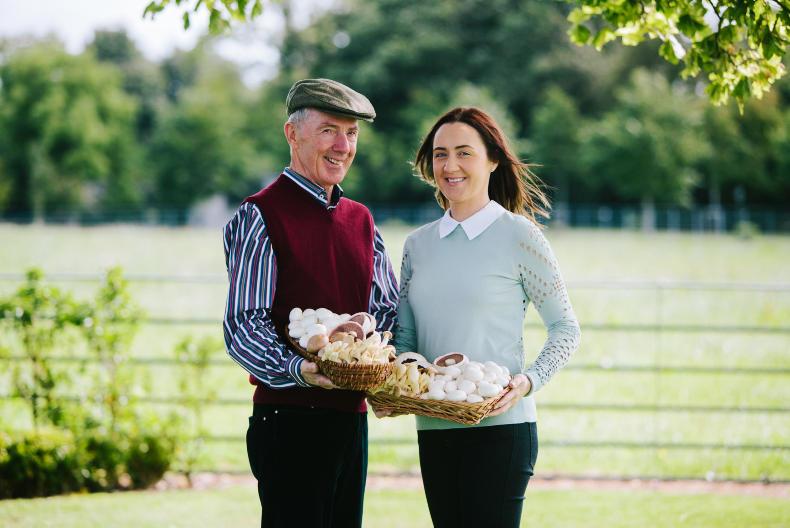

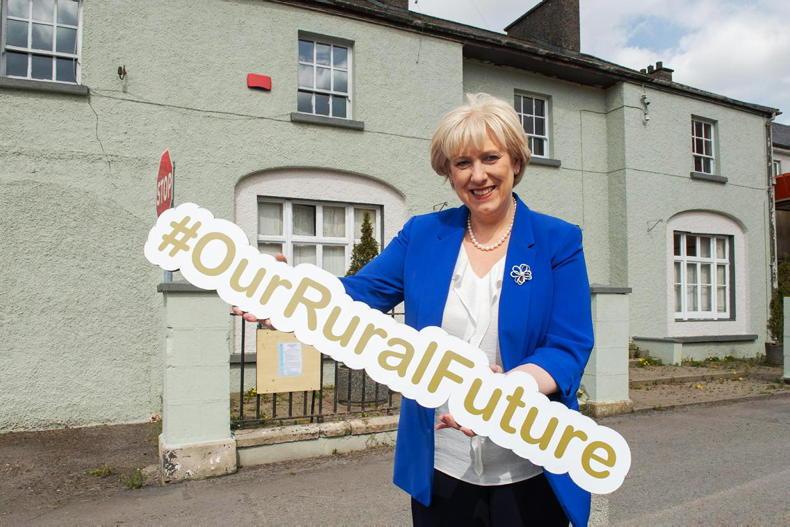
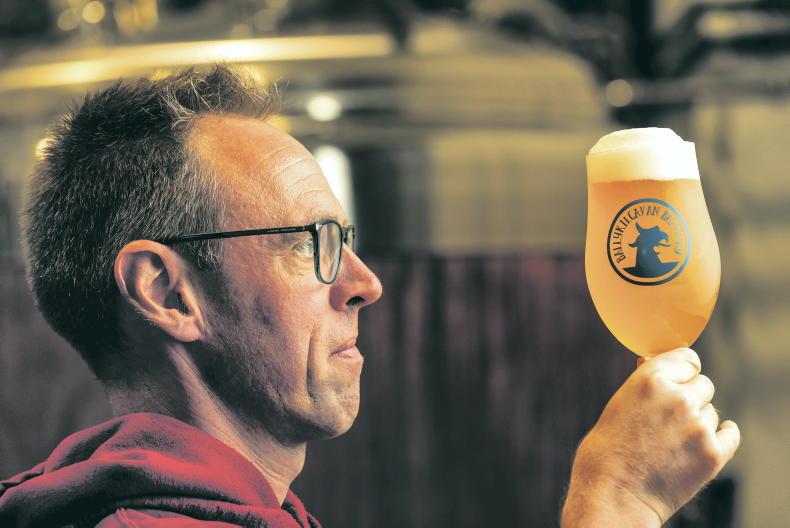
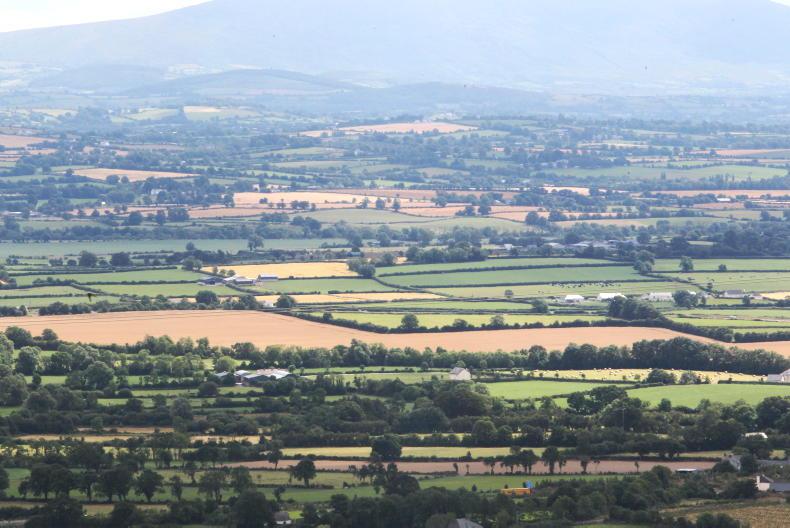
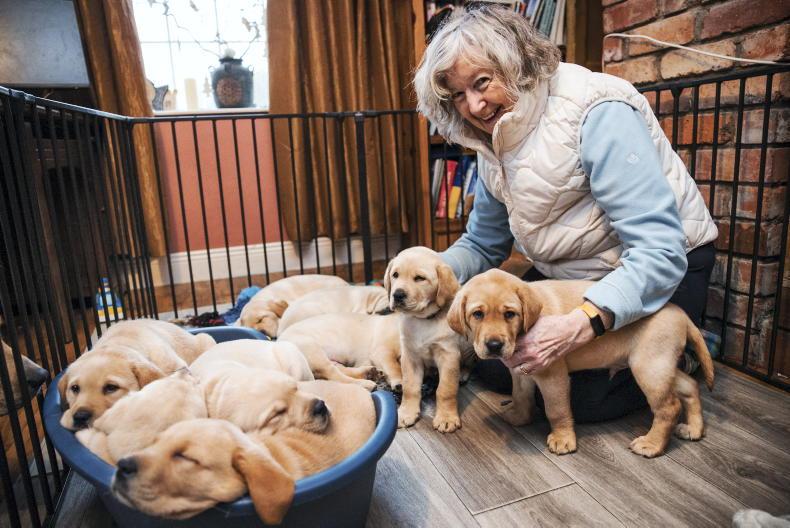
SHARING OPTIONS